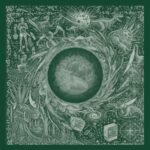My parents are devout Protestants. They met at church, got married, and had me. So, my name is not one of the many Korean names, but it is the name of a character from the Bible.
I grew up attending church every weekend, studying the Bible, and singing in the church choir with common Korean protestant Christian beliefs. However, because of my cynical and logic-loving personality, I had many unresolved questions about the attitudes pursued by Korean Christians. My parents are people with unwavering faith, and when I have some objections about that faith, they would not solve them but simply tell me that it was essential to believe and follow them unconditionally. Thinking back now, they didn’t know any other perspectives beyond that, so they didn’t have any answer either.
My Christian faith continued to grow with unresolved questions, and when I went to college in a city away from my parents, I found solace in religious activities and the community. And first time I thought about this n.1 ,2 paintings when I was in the university.
Nevertheless, even in my painting, the religion inside me is not just a medium or belief that shares comfort and love. I tried to express Christianity itself in a picture rather than the religion surrounding me and the emotional comfort of humans. When I drew at the time, I thought of the fetus in the centre as baby Jesus. Of course, in Christianity, baby Jesus does not have as much meaning as in Catholicism, and it is simply considered one of Jesus’s growth processes. Rather than thinking of the baby Jesus as just a character or his childhood, I considered him the centre of the world’s will (from the creator’s perspective) created by human desires and hopes and of all humanity. The form is that of a human fetus, which is very human and is thought to be the root of the culture and society that makes up modern history, growing and expanding using the baby Jesus itself as nourishment.
I first start to thought about this painting 14 years ago, and now that much time has passed, my perspective on faith has changed significantly. I am much more realistic and sceptical about religion now than when I drew this picture. I have come to have a kind of atheistic Christian view, which is that Jesus, who was crucified, is already dead and gone, and our God does not exist in reality. However, I believe I can introduce myself as a Christian as long as I acknowledge that my belief or faith in him exists in some form. I recognise that he still dramatically influences human history and culture. I also learned that the rules and manners of Christianity were created and established by humans, that God does not judge good and evil, and does not intervene in the personal affairs of the human world, but exists in the distant past of the history of the universe as the Creator and Savior and that we have only judged whether we are right or wrong by the rules established by humans in the name of God as our standard. And I began to feel that the baby in my picture was a symbol that embodied the hopes and wishes of humanity rather than the baby Jesus himself. This baby could be a symbol of any religion in the world. It is inevitably in human form and has not yet revealed its proper form to the world, so it is pure and untainted, but it does not know good and evil, and it is the nutrient that makes the earth and humankind grow.
Recently, there was a rally in Korea against the Christian anti-discrimination law. The street demonstrations that gathered a million people were so disappointing. There were over a million people. They condemned the sinful homosexuals and prayed for their repentance. If the anti-discrimination law is enacted, it will actually be possible to legally punish discrimination against not only homosexuals but also immigrants, disabled, women, and elderly people. but Korean Christians all took to the streets and shouted their opposition because they thought the law was a law that supporting homosexuality. It is absurd to see the brazen position of individuals and groups full of discriminatory and irrational views, using God’s name for the issues they want and desire and claiming to act for the greater good, being expressed in Korean Christianity.
When they ignore the simple and straightforward verses of loving one’s neighbor that run through the entire Bible and represent the life of Jesus, insist on a few verses of the Bible that prohibit homosexuality, and claim that it is natural to discriminate against people, is there no room for doubt in themselves? It is difficult to understand what kind of beliefs blind them. However, if you think about it carefully, it is not incomprehensible.
The modern history of Korea is a miserable reality that continues from colonisation to division to the Korean War to dictatorship and massacre. Even if someone or a group tries to spread good intentions, people who are full of wounds and scars born from the trauma of war and massacre that immediately followed create groups with power and gain power, so isn’t it difficult for justice and righteousness to be enforced? Koreans are everywhere, marked by fear and dread due to the oppressed reality, a submission that cannot help but follow irrational judgments, the resulting sense of victimization, self-consolation for not being able to fight to the end, paranoid hypocritical and defensive attitudes, prejudice and discrimination, and the resulting cruelty.
Korean society, which has had difficulty changing itself due to so many traumas, has never had a short moment of peace for a hero, righteousness, or ideology worth following wholeheartedly to emerge and has only grown by endlessly comparing itself to others to catch up, is currently at the forefront of science and technology and development in the world. Still, in reality, it is the victims of war and massacre who have covered up their own wounds.
Korean Christians are the ones who have placed a silent God in the upper position that they cannot enter. The members voluntarily submit to the Korean Christian discipline that excludes all non-Christians and insists that only what some people follow is true. They consider laziness, which is not thinking for themselves about what is right and wrong, a virtue. The ruling pastors believe their chosen disciplines are essential for building the Christian community. The members sacrifice themselves, devote themselves to the community, and work together to achieve the Christian utopia. Isn’t this almost political and fascist?
The disappointment I felt when I saw the news was expressed by rubbing and erasing the last part of this painting with paint. The baby Jesus who created the human culture and history I had thought of was blurred. It was just a remnant of ‘love’ that Korean Christians sometimes hear and remember. For Korean Christians, love is not a guideline for life that they truly follow and practice. They sometimes hear about love as a cautionary tale; when they express it, they just love the moment it passes through them. I can only watch as the embodiment of love, like my roots, is crushed, but I wanted to leave a record of my despair at that moment and what I thought and learned.
——————————————————————————-
I wrote this script for my painting tutorial video. I wrote it too much of seriousness, feeling and effort, it might too cringy to some people, but anyway, I don’t have anywhere else to introduce, so I leave it here. And I wrote this together with the google translator HAHAHA, If there’s a some error with english, plz tell me. If you also dissapointed to that news, the rally in Korea, think about this point of view.
submitted by /u/TimePie5572
[link] [comments]















